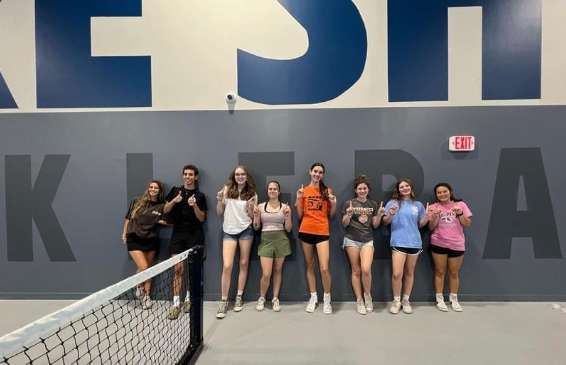FOMO: Are You Missing Out on Social Media or Life?
November 6, 2018
An epidemic of social media addiction has spread throughout most technology users. While social media can bring fantastic opportunities such as easy communication and resourcefulness, it also has its downsides, and it is now becoming more of a constant habit to repeatedly hit the refresh button than access a few healthy updates. FOMO, the Fear of Missing Out on social experiences online, is quickly taking a toll on young generations, and many may be at risk.
Young generations are so addicted to smartphones that they may as well be called the IGeneration. According to a survey conducted of a portion of the student body at Wheaton Warrenville South, 89.5 percent of students believe that their social media usage has increased within only the past year. Similarly, in the New York Times, a 2016 survey discovered that out of a nationwide survey of teens, half of teenagers felt addicted to their devices, and 78 percent checked their devices at least hourly. Seventy-two percent of teens felt pressured to respond immediately to texts, notifications and social media messaging.
“I’m always on my phone and even after I’ve checked everything, I still check my phone,” says Wheaton Warrenville South student Emma Formaro. Another anonymous South student says, ¨I focus more on showcasing what I am doing on social media as opposed to just being in the moment more than I used to in the past.¨
Additionally, with so many various social media platforms available for use, so many distractions are available within easy access. According to the poll previously mentioned, 100 percent of students have an Instagram account, 91 percent own a Snapchat account, 75 percent have a Twitter account, and 67 percent have a Facebook. With multiple accounts come constant updates and the need to check each platform to see exactly what everyone is busy doing and what is ¨in the new¨.
Distractions from real life and priorities are a huge issue that social media and FOMO bring to the table. According to Science Daily, the average college student spends eight to 10 hours killing time on their cell phone each day. Similarly, according to the WWS student poll, 70 percent of students spend more than four hours on their phones a day.
¨I don’t get my work done when I’m supposed to and I feel like hours go by really fast because of me wasting time,¨ says WWS student Hanna Cartwright.
While social media and the FOMO can lead to distractions, it may also put a person’s mental wellbeing at risk. According to Psychology Today, people with a greater fear of missing out tend to experience more physical and depressive symptoms and also score lower on mindful attention. With such a strong risk for instability when it comes to social media usage, the addiction to social media makes it even harder to break these bad habits. In the WWS student poll, only 59 percent of students said that they would be willing to take a two week break from social media.
¨When I see more people having fun I feel “left out” in a sense,” says one anonymous Wheaton Warrenville South student. The Fear of Missing Out can easily lead into jealousy and feelings of neglect after being given into.
The rise of social media, while it may have many benefits, can easily lead to anxiety and addiction. The Fear of Missing Out will continue to target teens as social media usage continues to expand, but as people learn to monitor self control, social media will also continue to be a tool of connection.







